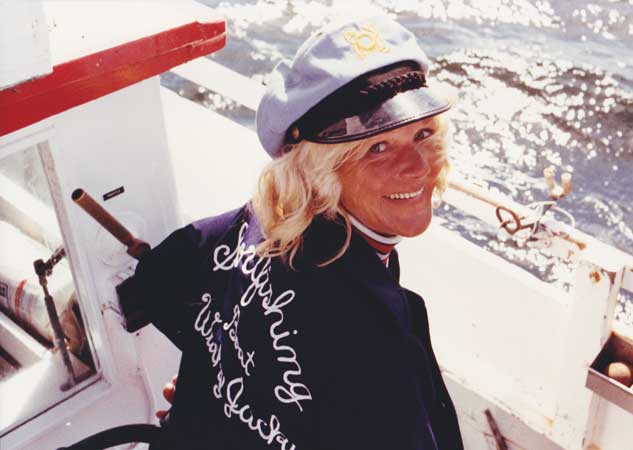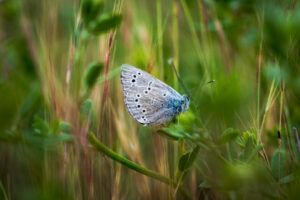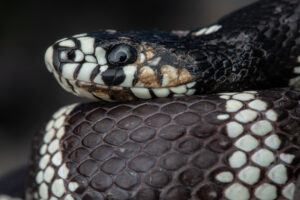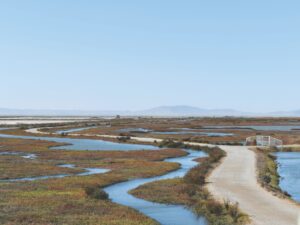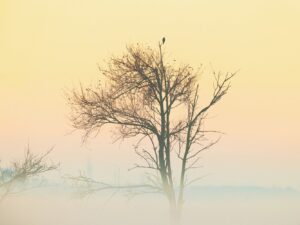This week, Jacqueline Douglas will be getting recognition she insists she’s not so sure she deserves. For 40 years, Douglas has been the captain of the Wacky Jacky, a sport-fishing boat out of San Francisco. On Thursday night, the Bay Institute and Aquarium of the Bay will be honoring her for her long dedication to protecting salmon.
“It’s a situation that I didn’t expect,” she says. “It’s hard to accept something that came so naturally to me. Everybody who enjoys their work should give back. And I did and I have.”
That part might have come naturally, but becoming a boat captain in the late 1960s and early 70s was no mean feat for a woman. In fact, Douglas was one of the first.
“In those days, women weren’t considered capable or whatever,” she explains. “I made it and passed my test and there was nothing they could do about it. Then they came out of the woodwork congratulating me, but it wasn’t an easy deal. I am the first one. But there’s a couple others that came and went. It’s a tough racket. They call me a tough chick now.”
She’d been sailing and fishing for 10 years by the time she became a captain. “I started out as a customer hiding behind my husband,” she says. “I was entering a world I fell in love with, but I had no idea was going to hit all those difficulties. I had no idea I was going to support the family everything. I always loved the ocean and I fell in love with fishing.”
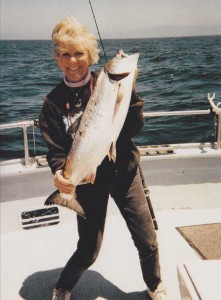
In the early days, she went out on a simple boat with a lead line, a compass, and some charts: “No radar, no equipment or anything like that. I fell in love with the whole atmosphere.”
Even before she had her own boat, she was active in efforts to protect anchovies from overfishing, since more anchovies would mean more food for salmon.
These days, she’s busy supporting policies that would send more freshwater down through the Delta, to make sure there’s enough for salmon. “I’ve been to [Senator Diane] Feinstein’s office recently and I hope she will come around to see that salmon is vital. Not only taking people fishing. That’s minimal, but also so many other businesses.” (Feinstein’s policies have lately been more friendly to human water users, as outlined by the High Country News.)
Even so, this season has been a good one, and Douglas’s boat holds the record for the largest salmon caught locally: 42 pounds.
But that’s not even close to the biggest she’s caught. “I have a 52-pound salmon, and it’s still hanging in my bedroom,” she says. “This goes back to 1973. I asked this old captain Taylor McGee what I should do with it. I was going to can it and send it to friends back East, but Taylor said, ‘Put it on the wall. You’ll never see one like that again.’ ”

